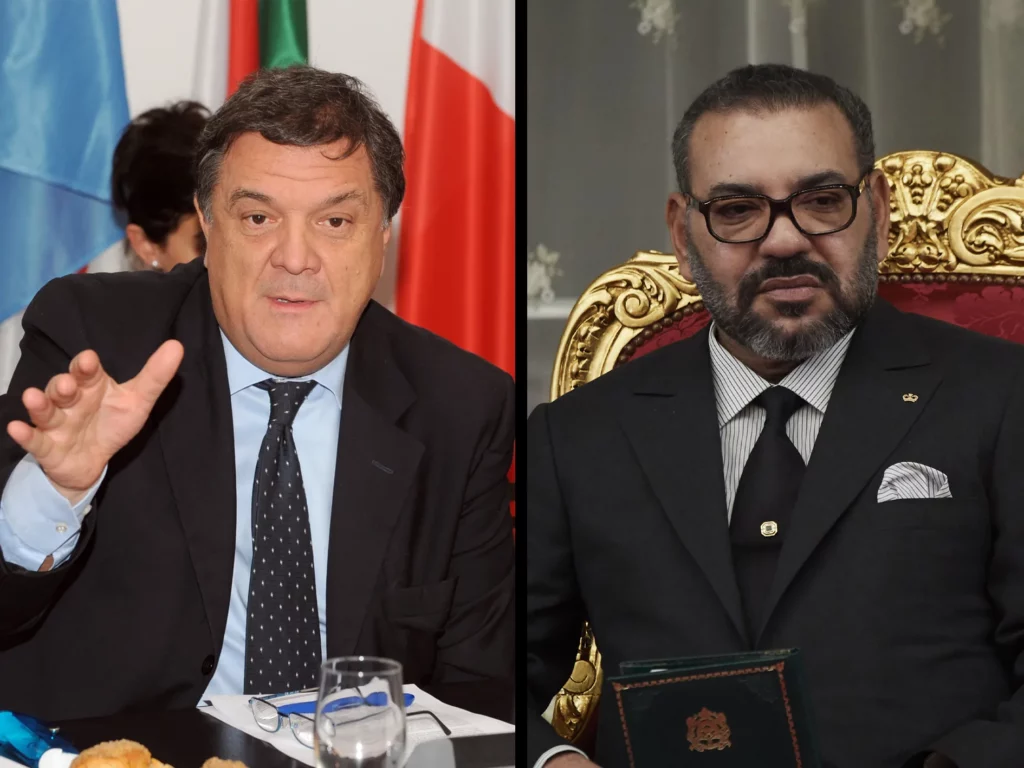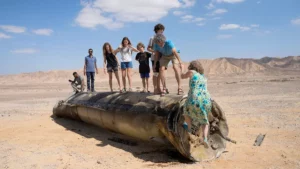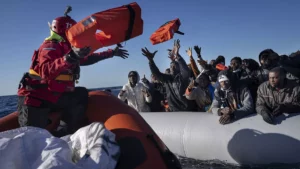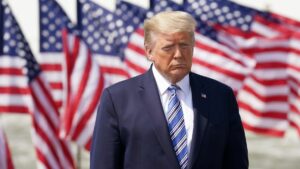EU Parliament scandal: The Morocco connection

In 2014, sheltering from the late July sun under a broad crimson umbrella, King Mohammed VI of Morocco awarded a raft of royal “wissam” decorations for services to the kingdom.
For those tracking a snowballing corruption scandal in Brussels, two names stick out from the list of recipients: Pier Antonio Panzeri, a former Italian member of the European Parliament who headed the assembly’s Maghreb delegation, and Abderrahim Atmoun, his co-president of the EU-Morocco joint parliamentary committee.
Atmoun, now Morocco’s ambassador to Warsaw, has proudly posted pictures of not only the award ceremony with the king on his public Facebook page but also an array of other images cataloguing his long association with Panzeri — a man whom he publicly salutes as his “friend” — from as early as 2011. In later pictures, they are at times joined by a youthful ginger-haired parliamentary adviser, Francesco Giorgi. In one picture, the three sit round a table in a meeting room, under a picture of a seascape, with bottles of Sidi Ali mineral water in front of them.
Fast forward to 2022 and the three men are caught in the middle of the biggest graft crisis to shake the European Union for almost a quarter of a century, as Belgium launches an investigation into whether Qatar and Morocco bought influence in the European Parliament. Panzeri and Giorgi — along with his partner, former European Parliament Vice President Eva Kaili — are in jail, facing preliminary charges of corruption. Belgium’s extradition warrant for Panzeri’s wife and daughter in connection with influence buying specifically names Atmoun for giving “gifts.”
Earlier in Rabat’s encounters with Panzeri, an internal Moroccan government letter from 2011 seen by POLITICO identified him as being potentially a “weighty ally” or “formidable adversary.”
Lawyers for the suspects have declined to comment, and Morocco’s embassies in Warsaw and Brussels are not responding to calls. Panzeri’s wife and daughter deny any wrongdoing.
Belgian Justice Minister Vincent Van Quickenborne gave a scarcely veiled indication to the country’s parliament on Thursday that Morocco was involved in the probe. Although he referred only to “a country that in recent years has already been mentioned in our country when it comes to interference,” this was universally understood to refer to Morocco, because Rabat’s security service has a long track record of monitoring its large diaspora community in Belgium.
More specifically, Van Quickenborne noted the Belgian investigation ranged across a number of topics including “fishing rights.”
Fisheries are a highly sensitive topic in their own right for France, Spain and Italy, but for Morocco they are also a critical strategic issue because of the disputed territory of Western Sahara, claimed by both Rabat and an independence movement represented by the Polisario Front. Morocco has long pushed for fish caught off Western Sahara to be covered under Moroccan trade arrangements with the EU to bolster Rabat’s territorial claim.
Belgian authorities have given no indication of the other topics investigated but EU officials also often have to grapple with matters such as access for Moroccan phosphates for fertilizers, migration, visas and human rights.
While much of the early attention on the parliamentary corruption scandal focused on wealthy Qatar, Mohamed Sidati, representative of the Polisario Front in France, said the attention should be on Rabat. “People are talking about other Gulf countries, people are talking about Qatar, but that’s just the tip of the iceberg. Panzeri started with Morocco and not with Gulf countries,” he said.
Sara Eyckmans from Western Sahara Resource Watch, said she had met Panzeri on a few occasions to make a case on human rights and fisheries from the Western Saharan perspective, but had found him unreceptive. “And, you know, you would sort of hit a wall — like it would be very clear that he would not do anything with this,” she said.
Sarah Wheaton, Jacopo Barigazzi and Barbara Moens contributed reporting.
Source: Politico





